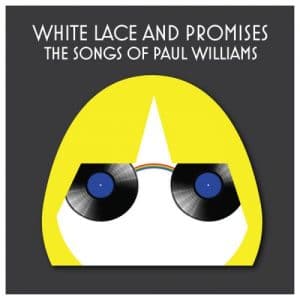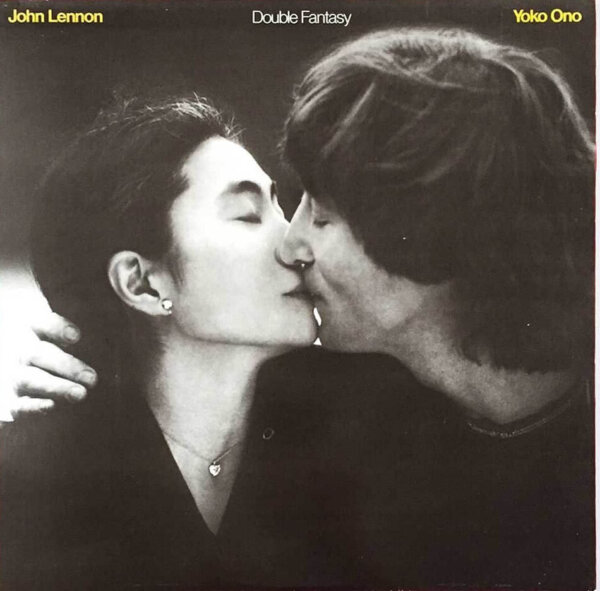Album Review – White Lace and Promises: The Songs of Paul Williams

 [usr=4]
[usr=4]
In the movie Amadeus, Antonio Salieri tries to impress a priest by playing some of his compositions on the piano. On the third try with no recognition yet from the priest, he plays Eine Kleine Nachtmusik. The priest nods, smiles and says, “Oh, I know that! That’s charming! I didn’t know you wrote that.”
“I didn’t,” Salieri replies. “That…was Mozart.”
Composer Paul Williams has had the same problem as Mozart. He has written some of the most recognizable tunes of the 1970s, yet few people know who he is. In fact, a recent documentary tried to put to rest the rumor that he had died.
The sound of the 70s
I remember Paul Williams from the 70s – a short, plump man with long blond hair and glasses who seemed to be everywhere – The Mike Douglas Show, The Tonight Show, crime dramas and The Gong Show. He even played Virgil the orangutan in Battle for the Planet of the Apes.
But people seem to have forgotten his songwriting credits: “Evergreen,” “Rainy Days and Mondays,” “The Rainbow Connection” and “We’ve Only Just Begun” aren’t played on the radio anymore. It’s up to compilation master Andrew Curry to help cement Williams’ legacy, and in White Lace and Promises: The Songs of Paul Williams, he does just that.
Curry starts the compilation with a bang; the Davenports take the schmaltz out of Barbra Streisand and Williams’ title theme to the movie Evergreen, creating a tuneful power pop anthem that is marvelous from start to finish. It’s this type of transformation that makes Curry’s compilations so enjoyable. He hands over songs to relatively unknown indie pop artists, who in turn transform them into pop tracks. And this is vital for the Williams compilation, for many of Williams’ beneficiaries – Three Dog Night, Helen Reddy and the Carpenters – are forever associated with the easy listening, soft-pop sounds of the 70s. The melodies sometimes get lost in the dated recordings and leisure suits; Curry’s army simply punts them into the new millennium.
Three Dog Night’s “An Old Fashioned Love Song” gets a facelift from Cait Brennan, who adds harmonies to soften the jaunty chorus. Likewise, Andy Reed goes a cappella in “The Rainbow Connection” for a brief time, taking it out of its lazy waltz and creating a new beauty to the song.
Some artists keep the songs true to their sometimes corny roots; the Test Pressings create a faithful interpretation of the theme to the 70s TV show “The Love Boat,” as do The Corner Laughers, whose version of the Muppets’ “Movin’ Right Along” recalls the version we hear in The Muppet Movie. But Brandon Schott lifts a melody from Gonzo’s squeaky, whispery “I’m Going to Go Back There Someday” (also from The Muppet Movie). I never knew it was such a beautiful song.
You’ll recognize the hits – “Rainy Days and Mondays,” “We’ve Only Just Begun” – and Cliff Hills and Corin Ashley, respectively, put their own spin on the popular songs that recall the originals. But some of Williams’ best songs remain obscure. “Someday Man,” once relegated to a B-side by the Monkees before surfacing on Williams’ first solo album, is a jewel that gets a warm remake by Zach Jones. “Still Alive,” an unknown song from the Williams documentary, shines in the power pop version made by Plasticsoul vs. Mannilown. And I’m embarrassed to admit I had forgotten all about the Carpenters’ “I Won’t Last A Day Without You,” in which Chris Price somehow manages to equal the original in its beauty and musicianship.
Paul Williams as a lyricist
Williams was both a songsmith and lyricist, but he’s most known for his lyrics, which often painted pictures of loneliness. “I’ll take my memories to bed / And know that I’ll be waking up alone,” sings Greg Pope on “Waking Up Alone.” In “You’re Gone,” a song he wrote for Diamond Rio, Phil Ajjarapu sings, “The good news is I’m better for the time we spent together / And the bad news is you’re gone.” What a stark contrast in the span of two lines. The melodies are sometimes perfect; the words are poignant and honest. And that’s what made him so good.
As Carl Wiser wrote in Songwriting Magazine, Paul Williams wrote the soundtrack to a generation. With a documentary and now a tribute album, Paul Williams is earning the reputation as being one of the 1970s’ premier songwriters. And with White Lace and Promises, Andrew Curry pays him a proper tribute with yet another compilation of memorable covers that remind us of Williams’ talents.


